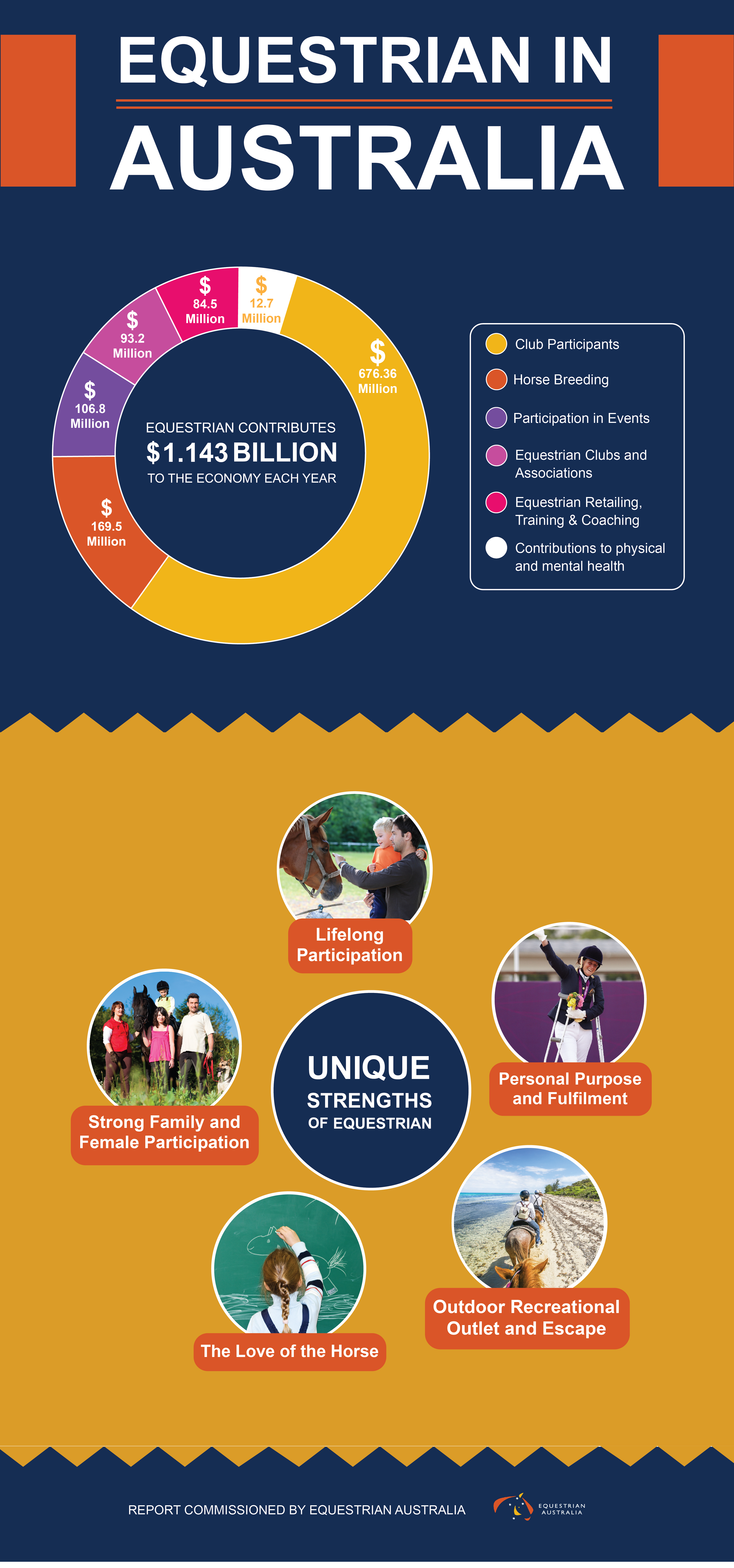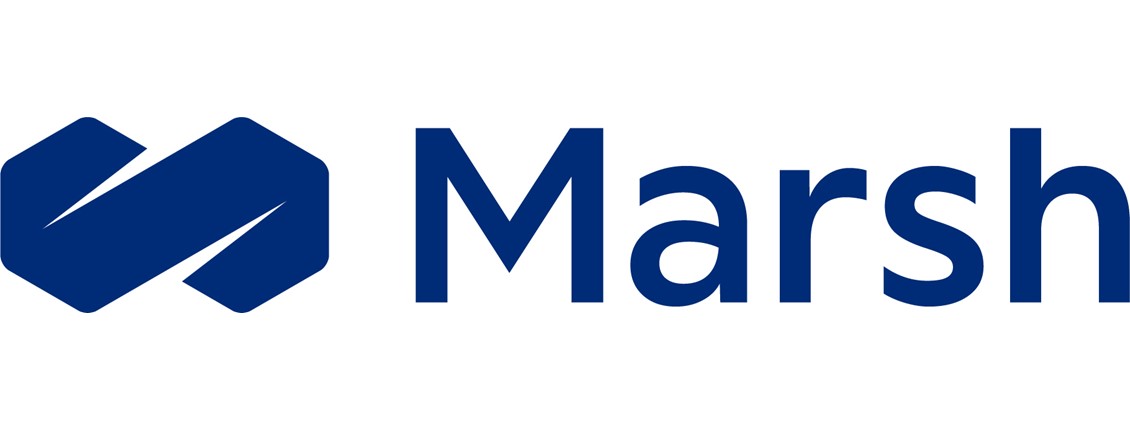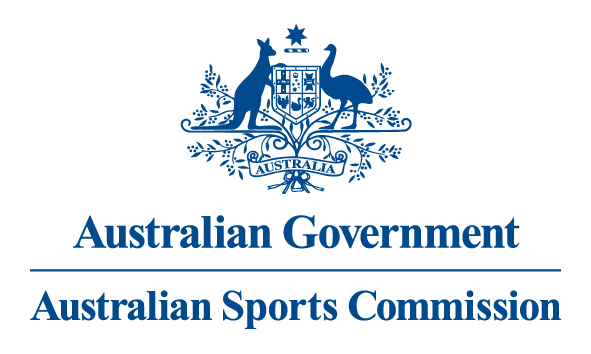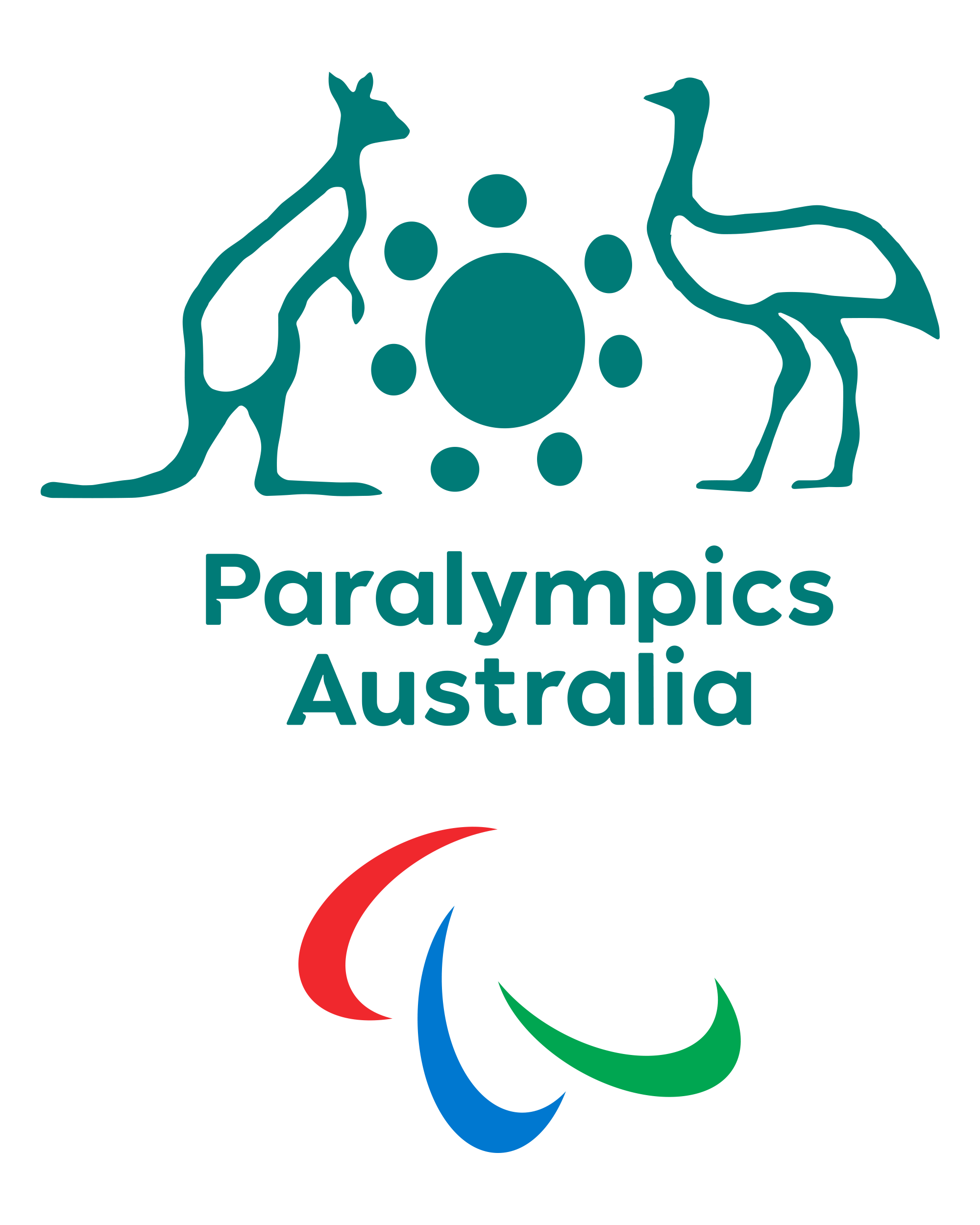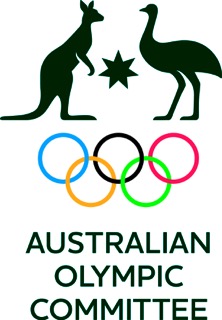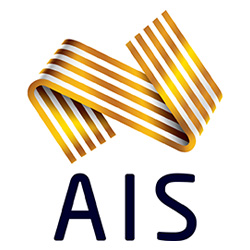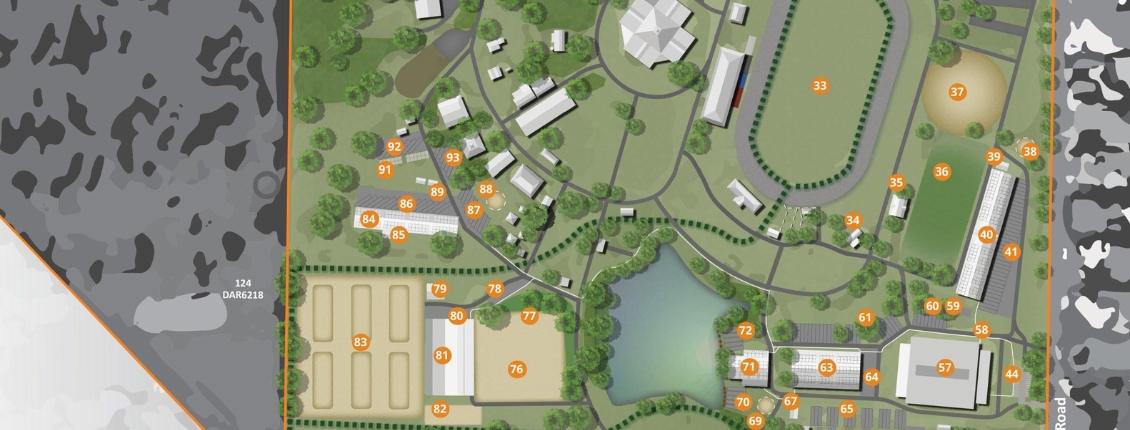Equestrian brings more than $1Billion to the Economy
In October, 2016, Equestrian Australia (EA) commissioned Sports Business Partners and Street Ryan to conduct a community impact study on Equestrian sport in Australia. We are pleased to now provide you detail with the outcomes of the report and what it all means.
It’s the first report of its kind ever commissioned by EA, in partnership with all state branches, and is a significant investment towards better understanding our sport, its stakeholders and the potential for future growth and development.
The main objective of this project was to determine the contribution of Equestrian to the broader community within Australia. The focus was to understand the community contribution generated across three key areas:
- Economic
- Social
- Health
The total economic contribution of Equestrian (excluding all codes of horse racing, polo/ polocrosse, rodeo, western & tent pegging) is over $1.143 Billion.
This is broken down as a $1.135 Billion economic contribution whilst the annual contribution to physical and mental health is an additional $12.724 Million.
Key findings were based on data from a wide range of sources to generate a holistic view of the contribution. These included the Australian Bureau of Statistics, Australian Sports Commission and Australian Government Department of Health.
Additional, vital information was also collected from a broad cross-section of Equestrian stakeholders and participants including an online survey of more than 4,500 members from within the Australian Equestrian community. The data received from this will be invaluable in moving the sport forward and working closer with the members based on their collective feedback.
“These significant findings confirm Equestrian as one of Australian sport’s top contributors to the national economy,” said CEO, Paula Ward.
“They give Equestrian a strong platform that will be fundamentally important as we work towards growing participation and building our sport’s public profile.”
“We now have a better understanding of the sport, the wider landscape, our members and where we need to go in the long term.”
The study determined that Equestrian sport has a range of unique social strengths not offered by other sports including lifelong participation opportunities and a structured, disciplined and selfless mindset.
The major point of difference Equestrian has from other sports is the responsibility that goes with the management and care of the horse. This selfless duty requires commitment, discipline and purpose.
76% of EA members say they are involved with the sport “for the love of the horse” and the community spends $371 Million each year on the maintenance and transport of horses.
With 75% of members involved in the sport more than four times per week and 78% have been involved for more than 10 years, this shows a significant level of commitment to the sport.
Equestrian also offers a healthy outdoor lifestyle and is, for many people, a recreational outlet that leads to personal purpose and fulfilment.
”Riding horses or even just being around these magnificent animals is a very fulfilling experience and men and women across all ages enjoy tremendous health benefits as a result,” Ward said.
“It is very heartening to see the hugely positive impact that participation in Equestrian has on the mental and physical health of Australians,” Ward said.
EA is acting on the findings from the Community Impact Study and the member survey results. During the coming months there will be a range of strategic initiatives launched, focussed on the growth and development of the sport.
“It’s a very exciting time for Equestrian. There is so much scope to build the foundations of our sport and increase its profile nationally and internationally.”
“Our new four-year strategic plan will help drive inclusion and development at a grass-roots level, and ultimately, our success at the pinnacle of competition across all riding disciplines.”
Key finding from the reports did highlight a range of strategic challenges that need to be seriously considered to move forward. Equestrian sport in Australia is governed by a complex hierarchy of over 50 State and National Committees and Boards. In addition, there are also a significant number of volunteers within the sport including Organising Committees, officials, administrators, coaches and event volunteers which enable the sport to run. (The data collected shows there are more than 9000 active volunteers contributing almost 50,000 volunteer hours to the sport in a typical week.)
Despite the strength of the volunteer backbone of the sport over the past 50 years, there are some concerns about the next generation of officials, event organisers and future leaders of the sport - and where they are coming from.
It has been identified that the current governance structure needs to be reviewed as the lack of alignment of rules, systems, processes and procedures restrict the sport’s ability to grow and prosper. There is a need to be able to seek and attract national commercial partners, establish clear national pathways to develop talented athletes, coaches and officials, communicate better with members and participants and promote the sport to the general public.
Equestrian is not completely unique in this area with other governing bodies such as athletics, gymnastics, motor sport, ski and snow board facing similar challenges.
Overwhelming feedback received from participants in our online survey indicated there is a desire for change to the current governance structure and for administration to work together better. There were areas highlighted by the members across a variety of platforms which EA has listened to and is now in the process of taking the necessary steps to implement changes in order to benefit our Members.
For the sport to grow its public following, EA must more regularly and efficiently share news and event information from a diverse and complex national events structure. To achieve this, event organisers and athletes, as well as State branches and the national body must work collectively. This will enable EA to expand communication beyond existing fans and participants and reach new audiences with compelling and authentic content.
Transitioning is underway for the introduction of a national commercial model. This will require a careful and well planned consultative process and valuable input from all equestrian stakeholders. Trust and confidence is the key to achieving this. By working collectively we will be able to deliver long term sustainable commercial support for the sport and its events.
There is a distinct need to grow the sport and offer pathways for inclusion for new riders of any age and background. Highlighting the social, physical and mental benefits of the outdoor Equestrian industry as well as available high performance and recreational pathways will draw more participants.
The Australian sporting market is becoming increasingly competitive with every organisation looking for an edge to attract new participants, volunteers, commercial partnerships, government funding and talented athletes. In addition to these market pressures, the Australian Sports Commission (ASC) has clearly stated its intention to improve the governance systems and operational efficiencies within the sector. ASC funded sports will be required to meet elevating standards in these areas to remain eligible for funding.
The general sentiment is that despite the diversity of Equestrian disciplines and overall participation levels that peak and trough with economic cycles, the sport has been stagnant for some time. For EA to elevate its position in the market, we must identify, plan and implement these areas of change. This will enable a national agenda for Equestrian in Australia, focussed on ensuring decision making is always aligned to long term vision for the sport. Now is a critical time for change.
EA is working hard and in collaboration with numerous stakeholders to implement a significant amount of change that will be of benefit to everyone involved in the Equestrian community and we look forward to continuing to work with each of you to grow our wonderful sport.
